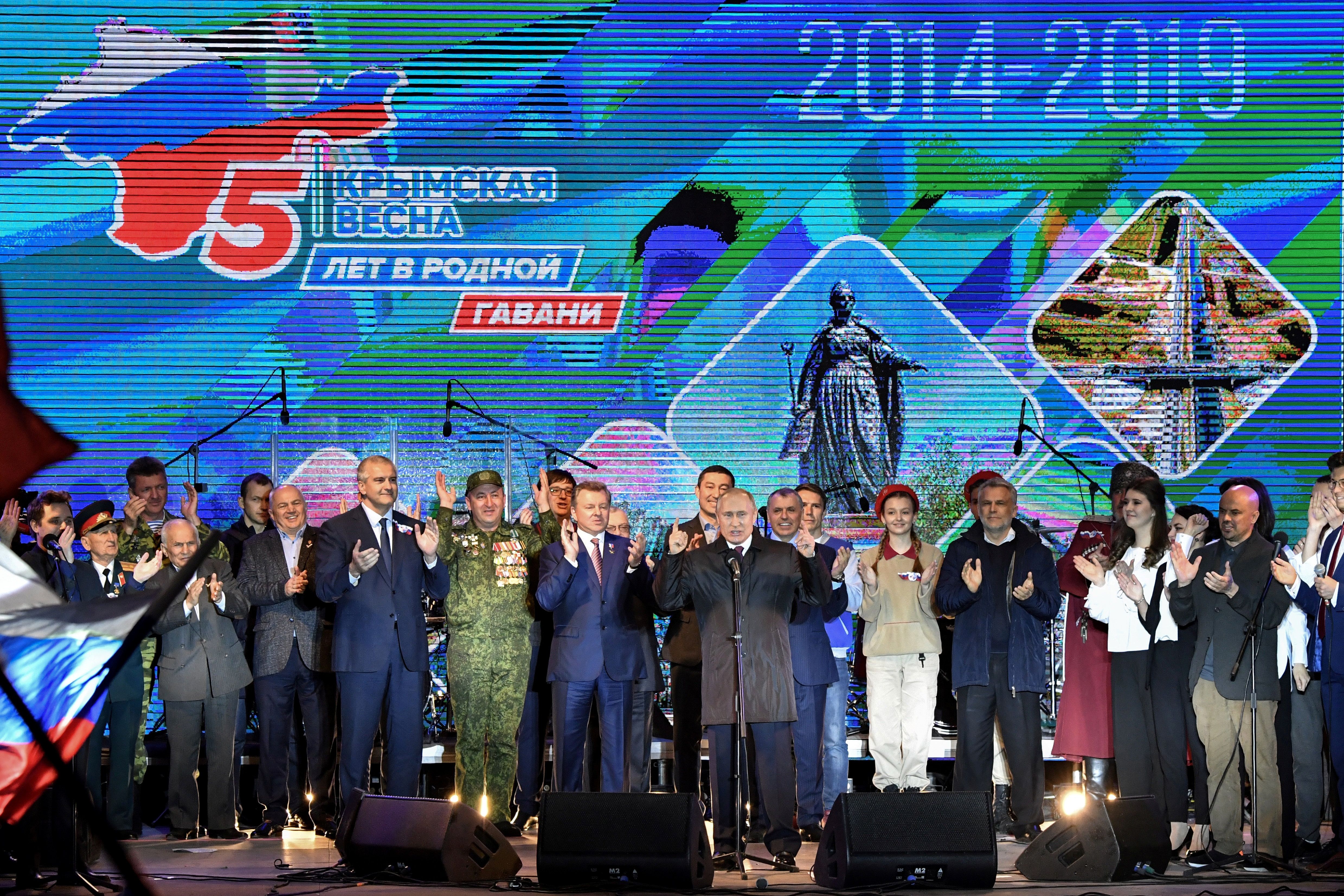Yesterday, Russian President Vladimir Putin touched down in Crimea to celebrate five years since Moscow seized the peninsula from Ukraine. Later this week, Chinese President Xi Jinping will travel to Europe, where Italy is expected to sign on to Beijing's trillion-dollar Belt and Road global infrastructure plan.
Our thought bubble: Each of these visits speaks to a different way that the world order – once dominated, for better or for worse, by the Euro-Atlantic "West" – is now rapidly shifting.
Russia tearing things down: Back in 2014, President Putin justified the annexation of Crimea by rattling off 20 years worth of grievances with the West, finishing with this warning: "if you compress a spring to its limit, it will snap back hard." Russia in the years since has been in snapback mode – keen to defend what it sees Moscow's sphere of influence (Ukraine), force the US to reckon with Moscow as a global player again (Syria), and to accelerate the political fragmentation of the West along nationalist/populist lines (using its cyber capacity to exacerbate underlying social and political polarization in Europe and the US).
China building things up: But where Russia is concerned primarily with accelerating the decline of an old order, China is looking to create a new one of its own – building new Chinese-led global financial structures, exporting Chinese technological standards and norms, particularly in the development of 5G, and broadening economic and trade relationships left to languish by a less trade-friendly US. Critics worry that Chinese loans will create debt traps, or that Chinese technology companies will muscle out Western competitors while creating national security liabilities. But dozens of countries are eager to tap into lavish Chinese financing for much-needed infrastructure, and to gain better access to that billion-strong export market.
The Belt and Road initiative, which already includes some 80 countries, is a centerpiece of President Xi Jinping's plan for China to "take center stage in the world." Until now, the that strategy has focused primarily on Africa, Asia, Latin America, and smaller countries on Europe's fringes – but if Italy signs on, it would be the first G7 country to join. That would mark a major new milestone in Beijing's global rise.
The big picture: US President Donald Trump has certainly upended long-standing assumptions about American support for a certain kind of global order. But that's only part of a much larger story in which a rising China and a rankled Russia are challenging and remaking the international landscape. In sum: it ain't all Trump.
